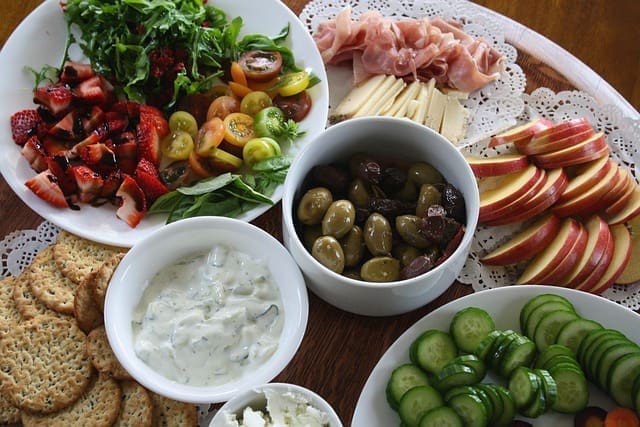What’s your favourite dish which brings you the most pleasure when eating? If you ask this question to anyone, you’ll likely get a passionate response. This is because humans are inherently designed to find pleasure in what they eat. For many, food is one of life’s greatest joys, but for others, healthy eating is more of a punishment which they learned to live with.
Taking the time to enjoy what’s on your plate is not only a delightful experience, but it also comes with numerous health benefits. Experiencing pleasure from food can improve digestion, enhance your relationship with eating, help overcome unhealthy eating habits, and more.
In some cases, ensuring you get enough “Vitamin P”—the pleasure in eating—is just as important as the nutritional content of your meals. Keep reading to explore why the joy of eating should never be overlooked.
The Science Behind Eating for Pleasure and Healthy Heating
Researchers have long been fascinated by the science of eating for pleasure, and their findings are both intriguing and positive. On a physiological level, the pleasure we derive from food is experienced in both our mouths and our brains.
“When we enjoy the food we are eating, our brain releases dopamine,” explains Aleta Storch, RDN, MHC, a dietitian and Certified Body Trust provider at Wise Heart Nutrition and Wellness. “Dopamine is known as the ‘feel-good hormone’ because it triggers the brain’s reward pathways, promoting feelings of happiness, relaxation, motivation, and focus.”
In fact, older research from 2011 suggests that people with obesity may have altered dopamine sensitivity, which could lead them to overeat in an attempt to reach adequate levels of pleasure from food. When our brain chemistry is functioning optimally, the enjoyment of food can have tangible physical benefits.
“When we experience pleasure from our meals and stimulate dopamine, it enhances our digestion and metabolism,” says Storch. “When we’re relaxed and enjoying our food, our nervous system enters a rest and digest mode, allowing our bodies to fully break down and absorb the nutrients.”
How Enjoyment Can Lead to Healthier Eating Habits
It might seem counterintuitive, but eating for pleasure can actually promote healthier dietary habits. A comprehensive review from 2020 examined 119 studies on the link between food enjoyment and a healthy diet. An encouraging 57% of these studies found that there is a positive association between the pleasure of eating and better dietary outcomes.
One particular study from 2015 discovered that individuals who derived greater pleasure from their meals tended to have better nutritional status. Additional studies have highlighted the importance of finding joy in healthy foods to encourage a well-balanced diet.
“There’s a common misconception that ‘healthy’ food must be bland or unappetising, but that’s simply not true,” says Sarah Gold Anzlovar, MS, RDN, LDN, a dietitian and certified intuitive eating counsellor. “When we eat foods that we genuinely enjoy, our satisfaction increases, which can improve our diet quality and reduce the likelihood of overeating or bingeing.”
The Emotional Nourishment of Food
Imagine if meals were simply a task to provide fuel for your body—how dull would that be? Eating plays a significant role in the human experience, from strengthening social bonds to connecting us with our cultural roots. Food is not only physical nourishment but also emotional sustenance. Here are some ways in which enjoying your food can nourish your soul.
Strengthening Social Connections Through Food Enjoyment
What’s a social event without food? When we share meals with others, it often enhances our sense of happiness. A 2015 study on Thai social communities found that enjoying food together contributed to increased social well-being.
Comfort and Food Enjoyment
Think about the comfort of a warm bowl of soup when you’re unwell, the pasta that reminds you of your grandmother, or your favourite dessert that always seems to lift your spirits. These foods not only comfort our bodies but also soothe our souls.
“Food can also offer comfort after a tough day, which is often misunderstood as negative emotional eating,” says Anzlovar. “But when we allow ourselves to connect with and enjoy our food, it can provide significant benefits.”

Breaking Free from Diet Culture with Food Enjoyment
Diet culture often promotes the idea that we must avoid foods we love, especially those that are high in calories or fat. However, allowing yourself to mindfully enjoy what you eat can help dismantle this harmful mentality.
“When all foods are permitted without restrictive rules—even the most indulgent ones—the body learns to trust that it will get what it needs,” Storch explains. “Giving yourself permission to enjoy foods that have been deemed ‘bad’ is a crucial step in healing your relationship with food. This can lead to greater peace, confidence, and freedom around eating.”
For more insights on how diet culture impacts our eating habits, check out this article on overcoming diet culture.
Connecting with Cultural Heritage Through Food Enjoyment
A strong sense of belonging is essential for mental health, and there are few better ways to experience this than through food. Enjoying traditional dishes can deepen your connection to your cultural heritage.
“Culture and tradition provide a vital connection with others and with ourselves,” says Storch. “When we restrict or deny ourselves foods that foster these connections, it can lead to feelings of isolation and disengagement. By excluding cultural foods, we are not only labelling the food as ‘bad’ but also the cultural identity associated with it.”
Embracing these foods can foster a sense of freedom and belonging, ultimately enhancing your mental well-being.
For more on the link between food and culture, see this resource on cultural food practices.
Pleasure in Eating vs. Emotional Eating
You’ve likely heard that emotional eating is something to be avoided. Turning to food to cope with difficult emotions like stress, anger, or sadness can lead to mindless eating and an unhealthy relationship with food. Given this, it’s understandable if the idea of eating for pleasure raises some concerns.
However, there is a distinct difference between emotional eating and eating for enjoyment, both in intent and outcome.
“Emotional eating is when food is used as a coping mechanism for emotions, whether positive or negative,” explains Anzlovar. “In contrast, eating for pleasure involves choosing food specifically for the joy it brings—such as enjoying an ice cream on a summer’s day or savouring a freshly picked apple.”
Another key difference between these behaviours is the level of connection you feel to your food.
“Often, though not always, emotional eating involves a disconnection or dissociation from the food,” Anzlovar notes. “In contrast, eating for pleasure is characterised by a genuine connection and enjoyment of the food.”
Of course, the line between emotional eating and eating for pleasure isn’t always clear-cut, and the two can sometimes overlap. A helpful way to differentiate the two is to reflect on how you feel after eating.

Pairing Pleasure with Nourishment: The Perfect Balance
Few experiences in life compare to the simple joy of eating. The food we consume not only fuels our bodies but also nourishes our spirits and delights our taste buds. To bring more enjoyment to your meals, start with small changes.
“When preparing a meal or snack, consider how you could make it just 10% more enjoyable,” suggests Storch. “Sometimes, heating up a dessert, adding some goat cheese to a salad, or simply adjusting the consistency of your oatmeal can transform a meal from ordinary to extraordinary.”
Once you’ve finished your meal, ask yourself: How much pleasure did I derive from this food? What positive emotions did I experience? The answers could guide you in making future meals even more satisfying.
References
- Storch, Aleta, RDN, MHC. “Wise Heart Nutrition and Wellness.”
- Anzlovar, Sarah Gold, MS, RDN, LDN. “Certified Intuitive Eating Counselor.”
For further reading on the relationship between food and emotions, you might find this article helpful.
By focusing on the joy of eating, you not only enrich your meals but also contribute positively to your overall health and well-being.
